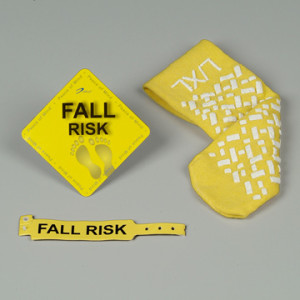When a patient presents a fall risk and a nursing home or hospital knows it, it makes sense to have a plan to prevent falls. A recent case out of federal court in the Eastern District of Virginia confirmed that, yes, the failure to make a care plan to prevent falls for a patient known to be at risk of falls states a plausible claim for negligence.
This seems like common sense, and the types of things to include in a care plan are not that outlandish either. For instance, once a hospital or nursing home knows a patient/resident is a fall risk, they can institute “Fall Precautions,” things like:
- Placing a sign on the patient’s doorway identifying her as a fall risk;
- Using extra care and/or manpower to move and assist the patient;
- Evaluating the patient’s medications to determine whether any may contribute to the risk of falling;
- Helping to orient the patient to new environments;
- Using a call bell, and keeping the call bell within reach;
- Monitoring for any new onset of or increased confusion;
- Helping the patient walk and move about;
- Placing the patient in a room near the nurses’ station for more frequent observation; and
- Considering the use of physical therapy for strengthening exercises and gait training to increase mobility.
Many other fall precautions exist and can be considered based upon the patient’s specific circumstances.
Those circumstances can change, so it’s important to evaluate a patient’s risk of falling and the fall precautions more than just once. Things like a recent break, fracture, operation, infection, and illness can certainly have an impact.
As family members, we can and should advocate for patients to be sure the facility has instituted fall precautions for at-risk patients. And we should ask questions to be sure we understand how to care for them when they return home. Fortunately, reasonable, ordinary care can prevent many falls; and it is nice to have another court’s acknowledgement that specific facts can establish a plausible inference of negligence in cases where reasonable care is lacking.

